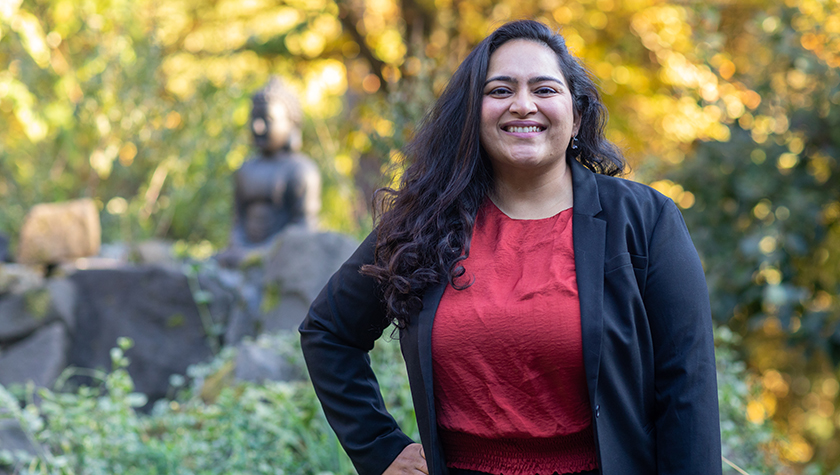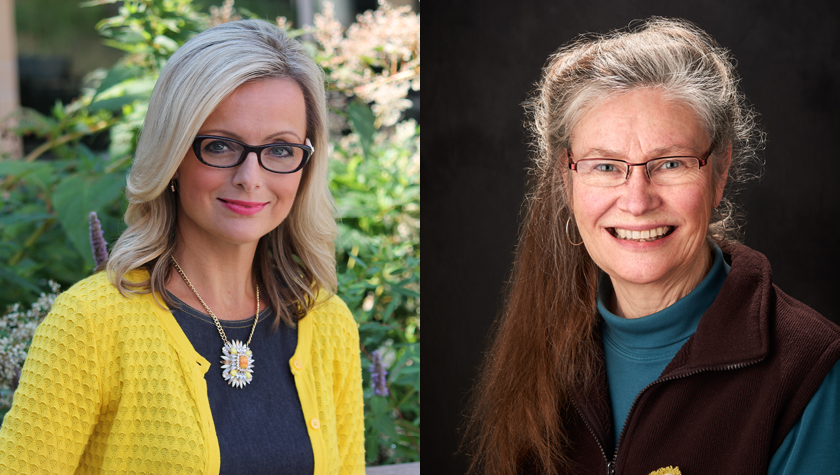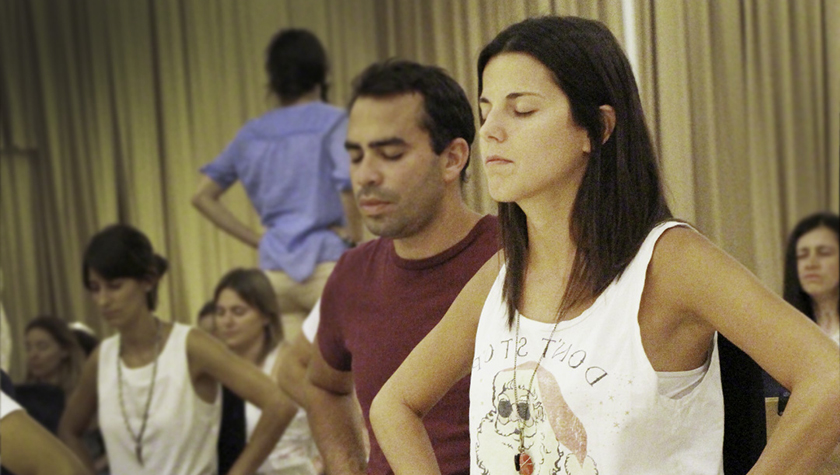
Alumni Pallavi Patwardhan and Abhijit Gadkari combine careers in health outcomes research with meditation and philanthropy
By Katie Ginder-Vogel
Pallavi Patwardhan (PhD ‘09) first discovered meditation during her time as a graduate student in the University of Wisconsin–Madison School of Pharmacy’s Health Service Research in Pharmacy program. The breathwork and meditation workshop she attended one snowy weekend with the Art of Living Foundation became a transformative moment.
“I remember feeling very relaxed after those sessions, in a matter of minutes, despite having had a long week,” she says. “That piqued my interest in meditation and breathwork and the impact it can have on physical and emotional well-being.”
“Peace starts from within, and if you are a lit candle, you can’t help but light other candles.”
—Pallavi Patwardhan
That workshop ended up shaping both the professional success and future community impact of her and her husband, Abhijit Gadkari (MS ’06, PhD ’09), who both now teach breathwork and meditation in their local communities and to work colleagues in the pharmaceutical industry in their careers as health economics and outcomes researchers. More recently, they have also gained certification in teaching a new protocol focused more specifically on anxiety and sleep management through the foundation.
“Peace starts from within,” says Patwardhan, “and if you are a lit candle, you can’t help but light other candles.”
A journey to wellness
Patwardhan and Gadkari’s journey started in India, where they met as undergraduate pharmacy students, then became close friends, and eventually started dating.
It was Gadkari who first joined the UW–Madison School of Pharmacy’s Health Services Research in Pharmacy program (then called Social and Administrative Sciences in Pharmacy), studying under Professor David Mott. Two years later, Patwardhan followed, studying with Professor Betty Chewning.
“I know I can pick up the phone and call Betty anytime,” Patwardhan says. “The School and the faculty made us feel at home — it’s such a warm, welcoming group of people that gave us a quality education.”
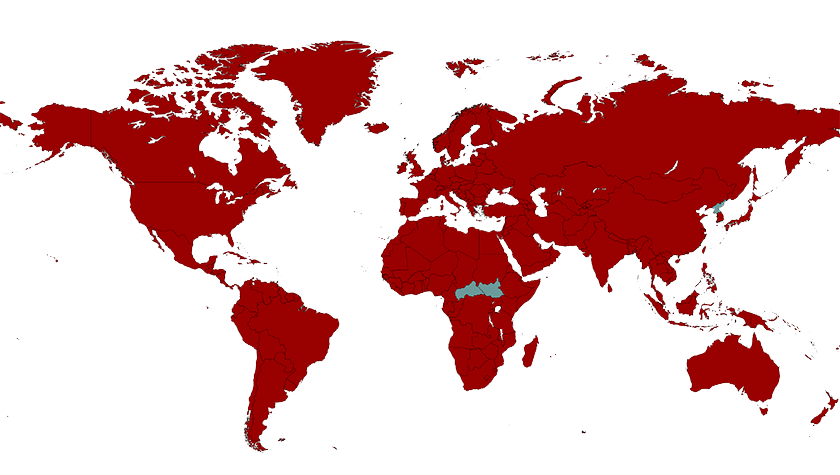
During graduate school, they turned to breathwork and meditation to manage the inevitable stress of dissertations and career uncertainty. Gadkari jokes that during those years, he would encourage Patwardhan to “go do some breathwork” to regain her calm. It worked so well that this shared journey evolved into a passion for teaching.
“It came about organically,” says Patwardhan. “We saw its impact on our individual well-being and our relationship, and as with all good things, joy increases by sharing. Every time we teach and share these skills with others, we refill our own cups, too.”
Today, they lead virtual breathwork/meditation workshops through the Art of Living Foundation, an international, non-profit organization committed to enhancing quality of life through the blend of ancient wisdom and modern science, with a particular focus on stress reduction and mental well-being Their commitment includes facilitating daily meditation sessions and teaching weekend workshops that can total up to 15 weekly hours of volunteer time. Participation in their workshops transcends social, cultural, demographic, religious, and even national boundaries. Participants have hailed from all parts of the country and even internationally, particularly Europe and Asia.
“We share breathwork and meditation techniques with a global community,” Patwardhan says. “It is incredibly beautiful to experience a sense of ‘oneness’ with people even when their social/ cultural background and life experiences have been very different from ours.”
Supporting education
Patwardhan and Gadkari have a longtime commitment to supporting education. Over the years, they have sponsored the schooling of over 30 students from vulnerable neighborhoods from all over the world through Unbound, an international non-profit focused on supporting families worldwide on their self-directed paths out of poverty. They also actively mentor students, offering guidance and support.
“Both of us have mentored students in different capacities, hoping to guide them and be a sounding board for them,” explains Gadkari. “We were fortunate to have access to high-quality education and feel grateful for any opportunity we get to extend that to others,” he adds.
“Facilitating breathwork and meditation workshops sends the message that it’s OK to struggle with stress and/or mental health issues, and there are tools to help.”
—Abhijit Gadkari
Through the International Association for Human Values, Patwardhan also helps to engage teachers around the significance of breathwork and meditation at the New Jersey Teachers’ Association Convention.
“Now that we’re connected with the teachers’ association, we hope to bring these skills to schools, with the goal of helping kids manage stress,” she says.
Professional excellence with purpose
The couple’s dedication to community impact is mirrored in their professional roles. Patwardhan, in her role as the director, U.S. health economics and outcomes research for a cell therapy asset at Bristol Myers Squibb, leads efforts to bring innovative treatments to patients. Her work focuses on oncology and hematology, addressing unmet medical needs through cutting-edge therapies.
“I have supported oncology and hematology exclusively for the past 10 years, working on a product that could replace the need for continuous treatment for multiple myeloma and lymphoma patients with a one-time treatment,” she explains. “It’s cutting-edge, and there’s a need for real-world research to understand its humanistic economic and clinical impacts on patients.”
Gadkari serves as the executive director and head of immunology and neuroscience for health economics and outcomes research at Novartis, where he and his team generate evidence to guide physicians in clinical decision-making by addressing clinical care gaps.
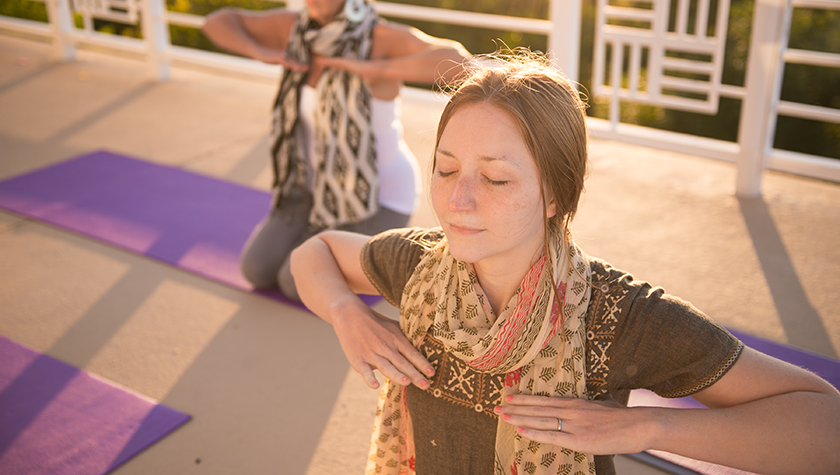
“After a product has been approved by regulators, patients and physicians have different options,” he says. “We generate evidence to help physicians with clinical decision-making — to make the best decision for a given patient.”
Gadkari manages a small team of health outcomes researchers, incorporating the mindfulness from his meditation practice into his managerial style.
“I genuinely aspire to create a positive, nurturing environment for individuals to grow professionally and to feel like they’re in a safe, positive space personally,” he says. That’s why he leads weekly meditation sessions for his colleagues at Novartis, emphasizing the importance of mental health in high-stress professional environments.
“There’s value in spreading awareness about these techniques,” he says. “Facilitating breathwork and meditation workshops sends the message that it’s OK to struggle with stress and/or mental health issues, and there are tools to help.”
For Patwardhan and Gadkari, their journey is about more than personal success — it’s about creating ripples of positive change. Whether advancing groundbreaking therapies, mentoring students, or sharing tools of inner peace, they strive to impact lives for the better.
“Every candle we light carries the potential to brighten countless lives,” Patwardhan says.
